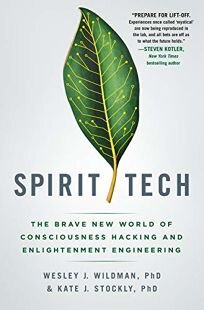Hannah remembers exactly where she was when she got the news her father was killed by a hit-and-run driver. Out for dinner and drinks with friends in Seattle, she noticed the missed call first. Then, the text messages from her older sister. When she stepped outside to talk to her mom on the phone, her father was already gone.
“I just stood there, frozen,” the 38-year-old said, “looking out and taking in the details. The way the sidewalk smelled after recent rain. The squeaking sound of the restaurant door as it swung open. The way a red light reflected off a puddle across the street. Every detail just singed into my memory.”
But Hannah could not remember the weeks and months that followed. “There was just a blur, a blank spot,” she said. There were family gatherings, a funeral, boxes of photos, and other details that Hannah struggled to recall.
Though the particulars were missing, the despair she felt only deepened. After a couple of years, her prolonged feelings of sadness and hopelessness drove her to seek therapy. She was prescribed antidepressants, but nothing seemed to help. Hannah withdrew from her church community and friends, developed anger management issues, and struggled with suicidal thoughts.
But then, Hannah came across a 2013 study from the University of South Floridaabout how psilocybin, the psychedelic compound found in “magic mushrooms,” can stimulate nerve cell growth in parts of the brain responsible for emotion and memory.
She sought out a counselor in Oregon who could guide her as she used psilocybin to access aspects of her memory she wanted to get in touch with again to help process the pain she continued to feel at the loss of her dad. More than psychological treatment, however, Hannah was also seeking spiritual solace. She did not want simply to recall the facts or feelings of her intense grief; Hannah was in search of something deeper: “I wanted to remember, to see how God was at work even then, in one of the darkest moments of my life.”
Now a spiritual director who offers similar services in the Seattle area, Hannah is part of a growing number of Christians, Jews, Buddhists, and others seeking out psychedelic-assisted chaplaincy and spiritual care to address psychological trauma and unanswered spiritual questions. Some, in search of mystical experiences, are also looking for unexplored avenues of spiritual connection to process suffering or to encounter the divine.
As part of a more general renaissance of interest in the potential medicinal and spiritual benefits psychedelics may provide, a slew of researchers, chaplains, theologians, and spiritual care professionals are asking questions about how substances like psilocybin connect the potency of mystical experience with the promise, and possibility, of mental healing.
They hope that in the next decade or so, new studies, therapies, and theological revolutions will lead to a breakthrough in the use of psychedelics for religious insight and remedial spiritual care.



